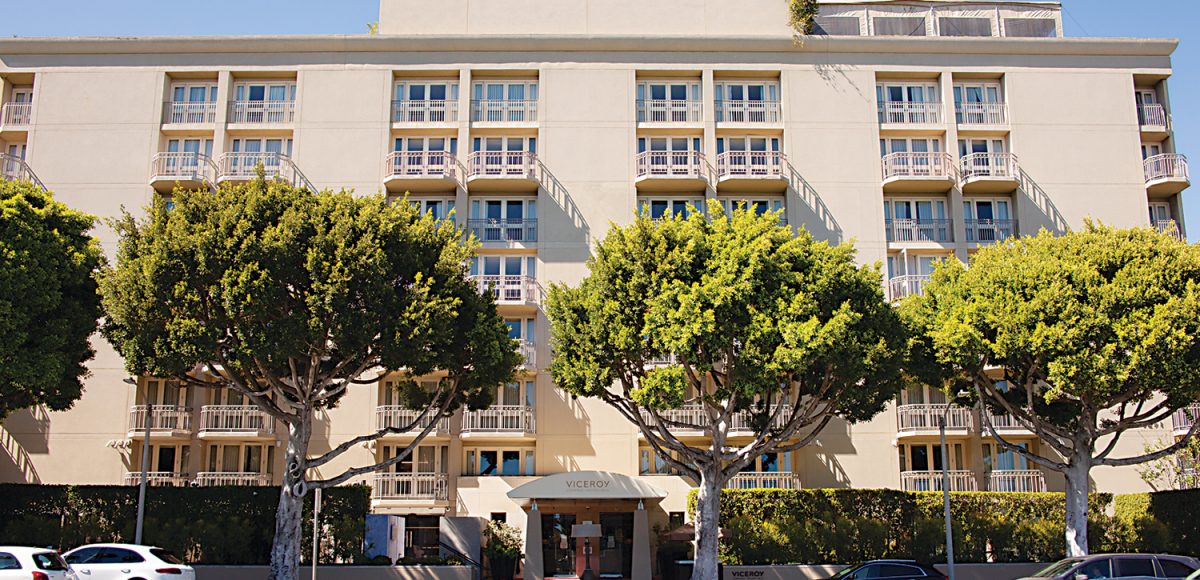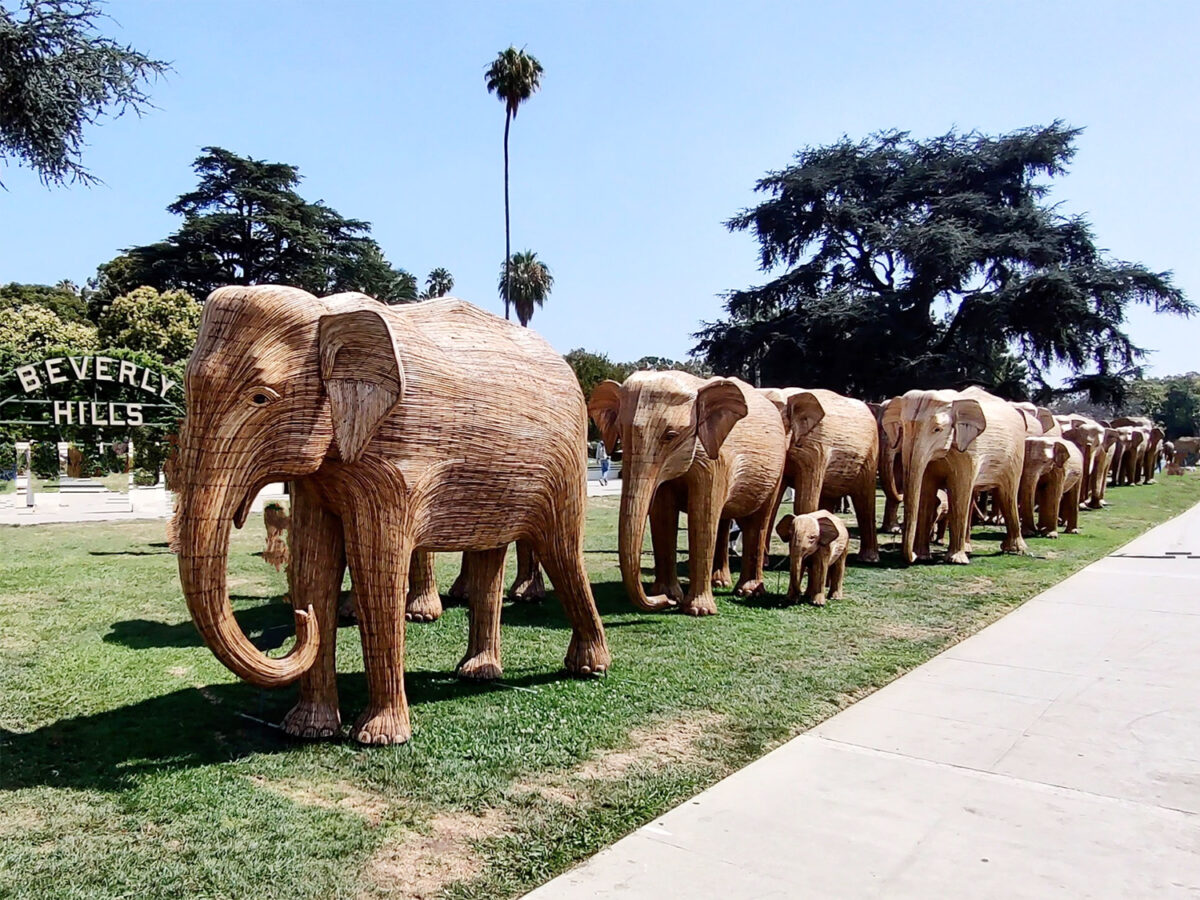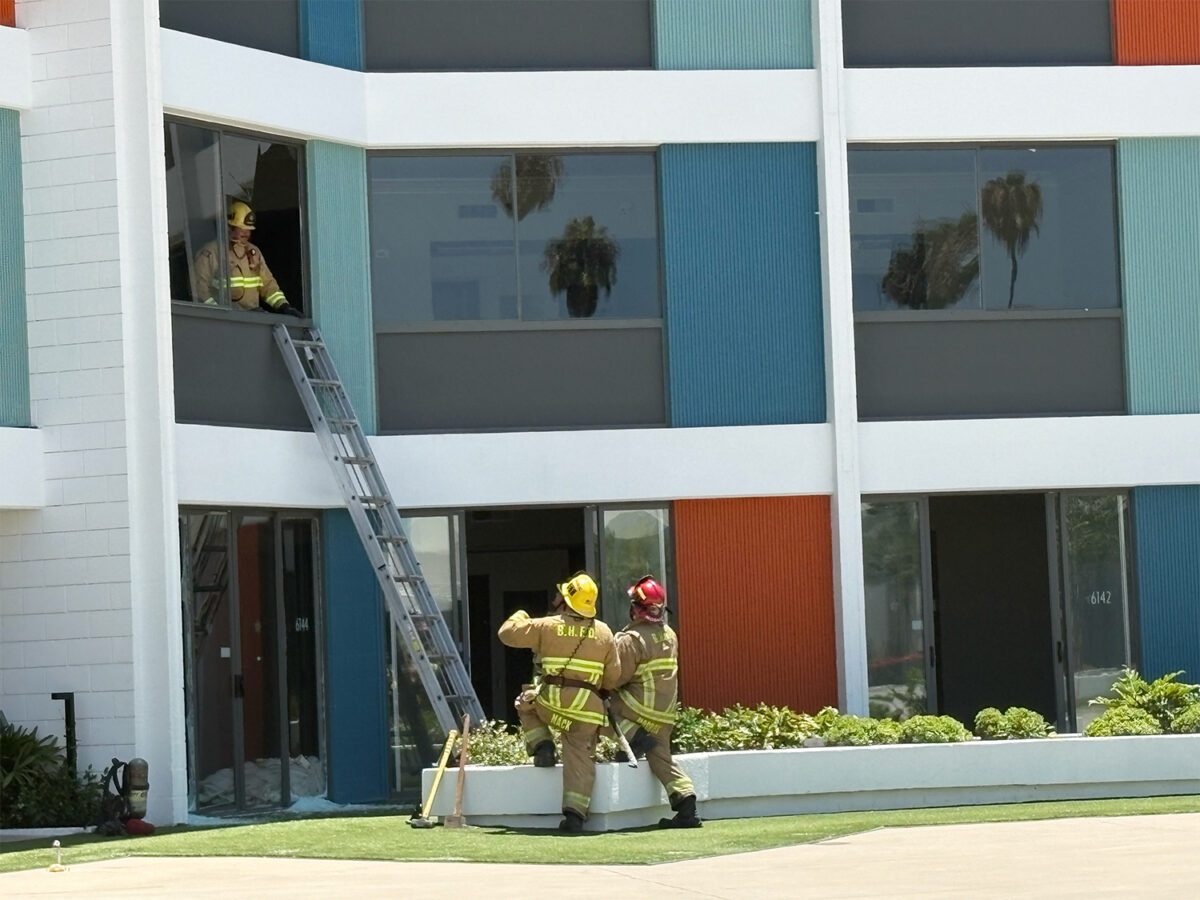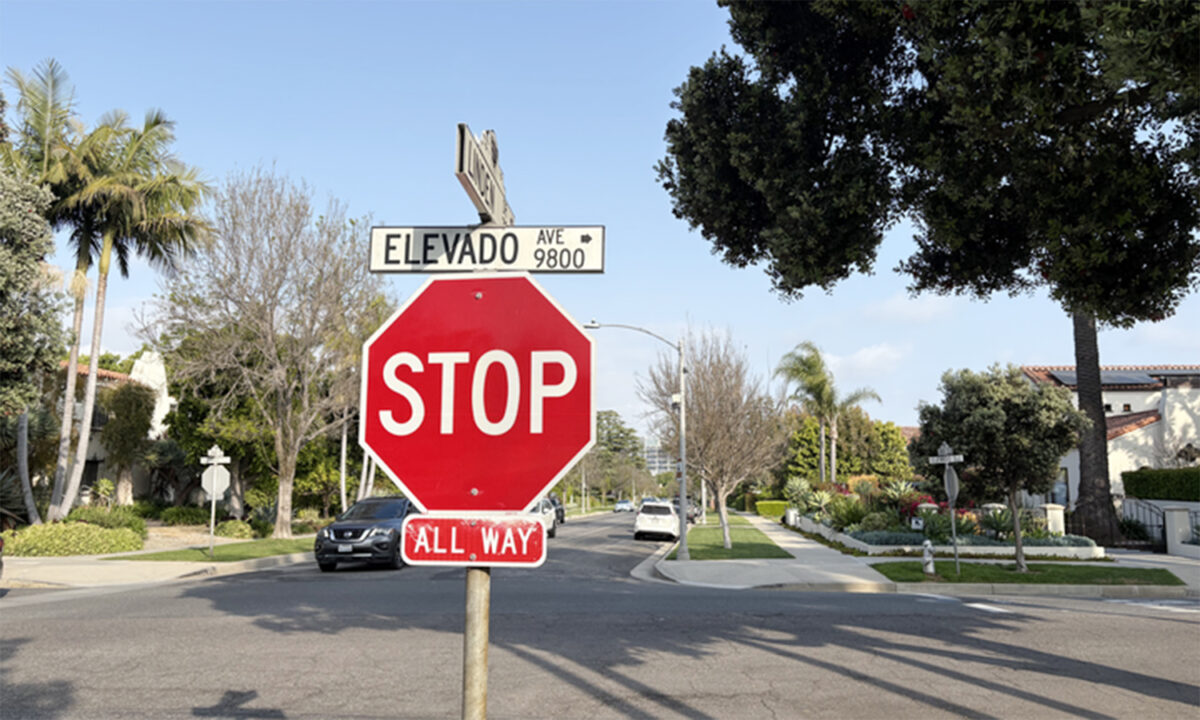The Viceroy L’Ermitage Beverly Hills Hotel, the luxury property seized by the United States Government as a part of an international investigation into foreign bribery and embezzlement of Malaysian state funds, has an anonymous, prospective buyer who has agreed to pay $100 million for the hotel. The sale precludes an auction that was slated to run on Aug. 19. The identity of the buyer remains unknown.
“I expect if we don’t say anything, the buyer will make an announcement after they close,” Matthew Bordwin of Keen-Summit Capital Partners told the Courier. “That is expected to be by end of September.
The hotel opened on tree-lined Burton Way in 1975, the work of brothers Severyn and Arthur Ashkenazy, Polish Jewish immigrants who came to the U.S. after World War II. The namesake of the hotel, the famed Hermitage museum in St. Petersburg, hinted at the property’s dual role as a luxury hotel and high-end art gallery, according to a 1989 Los Angeles Times profile. By the mid-’80s, guests could spend $200 a night to stay in a suite and hundreds of thousands more to leave with a Picasso.
But the Ashkenazys’ tony hotel empire, which also included Le Bel Age and the Mondrian in West Hollywood, came crashing down in 1986, when they declared Chapter 11 bankruptcy. The L’Ermitage wound its way through multiple real estate portfolios and numerous renovations until 2010, when it was purchased by 38-year-old Malaysian financier Jho Low for $46 million.
Six years later, the Department of Justice accused Low of financing the hotel as well as a superyacht, millions in artwork and a luxury New York condo by siphoning money from a Malaysian investment fund into his own accounts.
The fund, 1Malaysia Development Berhad (1MDB), was formed to make investments on behalf of the Malaysian people. According to prosecutors with the Department of Justice’s Kleptocracy Asset Recovery Initiative, Low instead used it for his personal benefit, even using the money to invest in major motion pictures.
“The funds diverted from 1MDB were used for the personal benefit of the co-conspirators and their relatives and associates, including to purchase luxury real estate in the United States, pay gambling expenses at Las Vegas casinos, acquire more than $200 million in artwork, invest in a major New York real estate development project, and fund the production of major Hollywood films,” prosecutors charged in a complaint filed in July 2016.
(With on-the-nose irony, one movie Low invested in was “Wolf of Wall Street,” the 2013 Leonardo DiCaprio vehicle about a corporate fraudster taken down by the federal government).
Low, who has remained in hiding since the charges first surfaced in 2016 and has not appeared in court in the U.S. or Malaysia, has strenuously denied his alleged role in the scheme.
“For the past several years, I have been subject to a series of allegations across the globe in relation to the operations of 1Malaysia Development Berhad,” Low writes in an open letter posted on his personal website. “I will continue to fight the broad, sweeping, unproven, biased and politically motivated allegations against me, and I am confident that as facts come to light, the truth will be revealed.”
After the federal government filed a civil forfeiture action against L’Ermitage in 2016, the United States District Court for the Central District of California Michael M. Eidelman, to handle its sale. Eidelman, a partner at the law firm Vedder Price, P.C., then selected Bordwin to conduct the auction itself.
Before accepting initial bids on the property, Bordwin sought out a “stalking horse” bidder–an entity that sets the reserve price for the auction. In this case, the entity set a floor of $100 million. For anyone to gain entrance into the auction, they would have had to put forward a bid of at least $104 million.
In a conversation on Aug. 5, Bordwin told the Courier that he had fielded a large amount of interest in the property.
“We’ve had interest from every continent except Antarctica,” he said. “We’ve had private equity companies, real estate investment funds, real estate investment management companies, high net worth individuals and corporations [with] funds to invest.”
By his estimation, it seemed that the auction would take place. “I am anticipating we’re going to have an auction based on my conversations,” he said.
But in the end, despite the interest in the prestigious lodgings, the stalking horse bid stood unbeaten. “The stalking horse bid we accepted was the highest offer we received,” Bordwin said. “We had hundreds of parties review the opportunity but could not beat the $100 million offer.”
The ongoing pandemic has trampled the hospitality industry, with the American Hotel and Lodging Association reporting more than $46 billion in lost room revenue since mid-February. Before the stalking horse bid had been selected, Bordwin shared that some potential buyers were considering turning the hotel into a residential building. Still others, he said, were considering a hybrid residential-hotel model.
Along with their identity, it remains unclear what plans the prospective buyer may have for the Beverly Hills landmark.







